7 Tips for Multitasking as Co-Writer, Director, and Star of Your First Feature
Three friends helmed their first comedic feature, '5 Doctors,' as a trio. Here's how they kept their friendship intact.
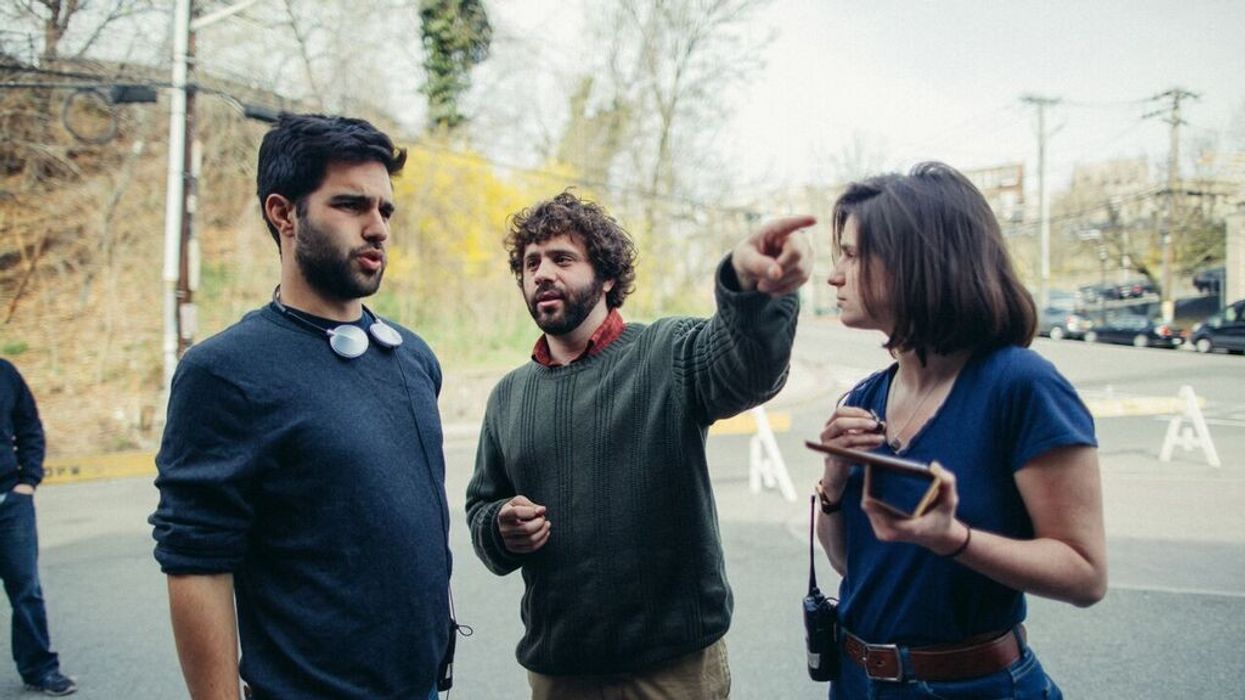
Sketch comedy trio Max Azulay, Matt Porter, and Phil Primason have been friends since the age of 14. As an actor and writer, Azulay's work has been showcased by The Onion, Funny or Die, and the LA Comedy Festival. Porter is an actor and director whose web series Good Cop, Great Copgot him featured in the Just For Laughs Comedy Festival ’17 as one of the “New Voices in Episodic Storytelling.” Primason is a screenwriter by trade who most recently wrote the upcoming Barry Levinson and Billy Crystal feature-length comedy, Revival.
The three friends first met in high school, started making shorts together in college, and recently finished their first feature film—which they co-directed as a team—5 Doctors. The decision to co-direct was seen as the culmination of their adolescent dynamic, and it was a move their entire crew thought would be a disaster
Upon meeting the trio, their camaraderie is immediately evident, and they’re proud of what they’ve accomplished: they came in under-budget, got the film into festivals, and worked with personal heroes Bobby Moynihan, Eddie Pepitone, and Peter Friedman. They learned an amazing number of filmmaking lessons and, on the eve of the film's digital release, agreed to share them with No Film School readers.
1. Don’t let fear stop you
While it may be hard to believe, these three friends actually started out as rivals. Each one of them was the ‘film kid’ at their respective school, and once high school hit, “a very ambitious sleepover” took place where they sized each other up. They had the right creative mix and, from that moment on, spent years developing their artistic shorthand. And while they made short film after short film, a feature was always their goal. The only question was when?
“We realized that no one was gonna show up and do the work for us; we had to make our own dreams come true."
They finally realized that there was no right time: the cavalry wasn’t coming. Taking a page out of the Duplass playbook, Azulay explained, “We realized that no one was gonna show up and do the work for us; we had to make our own dreams come true. So we decided to do something that plays to our strengths.” Porter nodded, “We shot in the town where we grew up, starring the two of us [himself and Azulay], dealing with common themes,” he explained. “It was like a new, extended version of what we’d been dancing around for a while.”
“It’s harder to convince yourself to go through with a project when you’re on your own.”
In many ways, their collaboration was a salve for self-doubt. “It’s harder to convince yourself to go through with a project when you’re on your own,” Porter mused. “I’ve had stand-up shows with Charlie—my collaborator on Good Cop, Great Cop—that have gone really bad. But we’re up there together. We just look at each other and go ‘OK, well, let’s at least have fun.’ It was the same for 5 Doctors.”
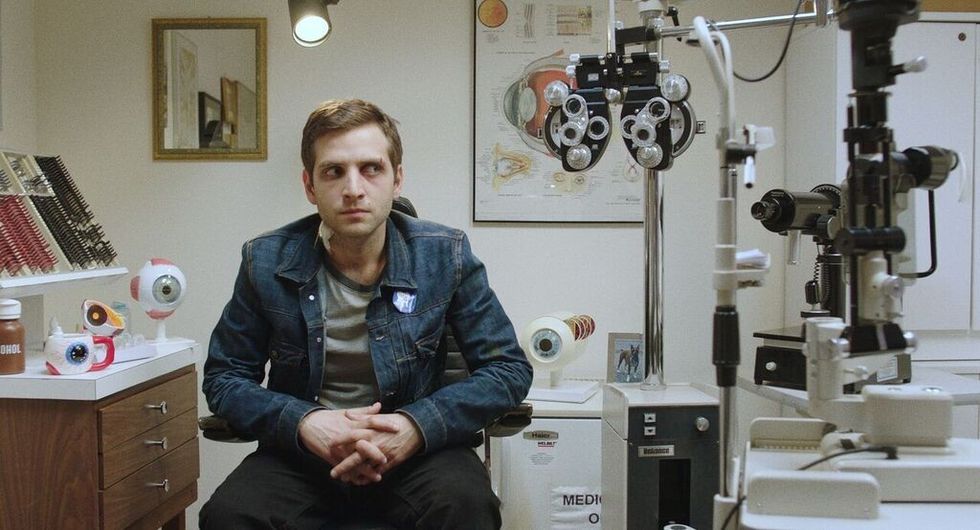
2. Maintain the momentum
The three sat down together and churned out a script. “We had a standing weekly film call for four years,” Primason recalled. "There were a few years of banging our heads against the wall, going through different options,” Azulay remembered, "and we had conversations about making the movie for as little as a thousand bucks. It was a long process before we actually felt our ideas gaining momentum.”
The trio cites forward momentum as their secret ingredient. “When you’re writing a feature, you’re always looking for shortcuts,” Primason explained, "and it's like signing a big actor, getting an angel investor. Ultimately we learned that we had to move forward regardless of whether or not things were falling into place the way we’d imagined.”
As it turned out, they had held the keys the entire time. “We finally figured it out,” he laughed. “It was much easier to get people excited once the movie was actually going to happen. That made our pitch convincing.”
“The more people who like your idea and feel invested, the less likely you are to let each other off the hook, and the more likely you are to make it happen.”
It also helped that they weren’t all talk: Azulay, Porter, and Primason each had a lot of work to show. The only missing ingredient was proof of concept, and so they came up with that too.
They got a professional photographer friend to shoot promotional stills and a sample scene, and even though it was barebones, it captured the intended look and feel. They even packaged their 5 Doctors look-book in a fake medical folder for added charm.
“Get other people involved as early as possible."
Making a feature film was like creating a start-up: if you want to get people on board, the train should be in motion. You have to move fast. “Get other people involved as early as possible,” Azulay advised. “The more people who like your idea and feel invested, the less likely you are to let each other off the hook, and the more likely you are to make it happen.”
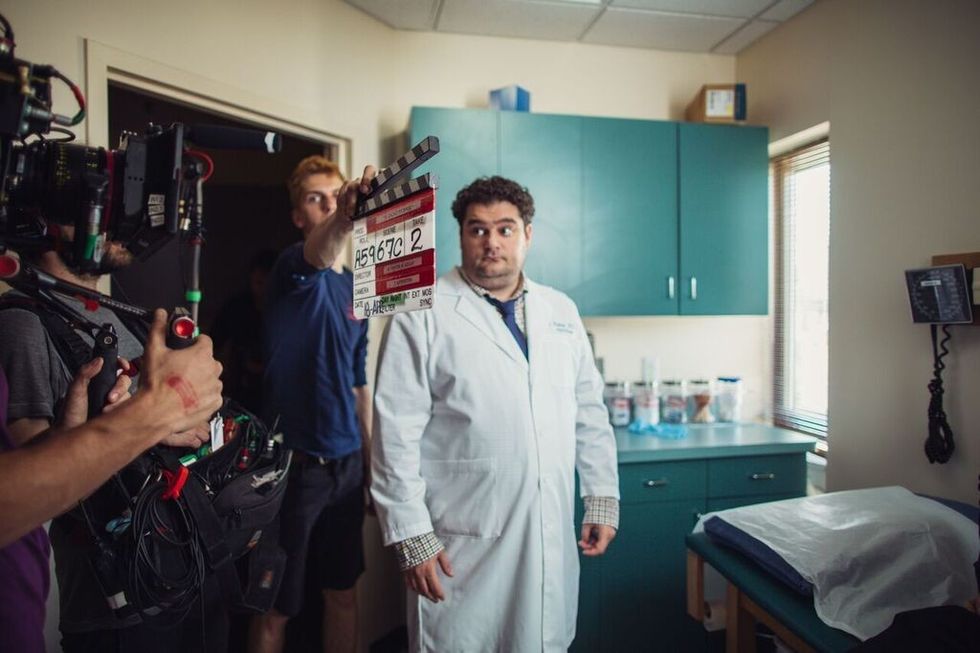
3. Don’t skimp on hiring
The next problem the team tackled was whom to hire. From casting directors to music supervisors and caterers, they soon learned that the chain is only as strong as its weakest link. “When you make shorts, you’re like ‘yeah, we don’t need a lawyer,’” Porter shook his head ruefully, wiser now. “But even on a low budget feature, a lawyer is crucial. When we finally hired one, all the bad stuff got better. One of our biggest takeaways was how effectively structured film production actually is. From the outside, you might think a given job is superfluous, but once you’re actually in production, well…Anytime there was a role missing, we felt it. Our worst experiences weren’t because of the people we hired, but a lack thereof.”
"There were so many times we were grateful to have these things we initially thought were expendable.”
Primason nodded, almost embarrassed. “We were so arrogant before production. We were like ‘Psh, you don’t need that many people to do this.’ But we learned that film sets run the way they do for a reason. You DO need a location manager, you DO need a second AD. There were so many times we were grateful to have these things we initially thought were expendable.”
When they finally wised up, they hired people who knew a lot more than they did. They enlisted DP Zach Kuperstein (who since shot Nicholas Pesce’s The Eyes of My Motherand Piercing, both Sundance hits), along with many crew members whom Kuperstein recommended.
“We had such a great crew, we really got lucky,” Primason & Co. attested. “After all, we were asking a lot from them: ‘Come live in this town for 24 days.’ They weren’t just technicians on our set, they were living in our houses, spending all their free time with us. I think we would have stressed more if we’d thought of it that way beforehand.”
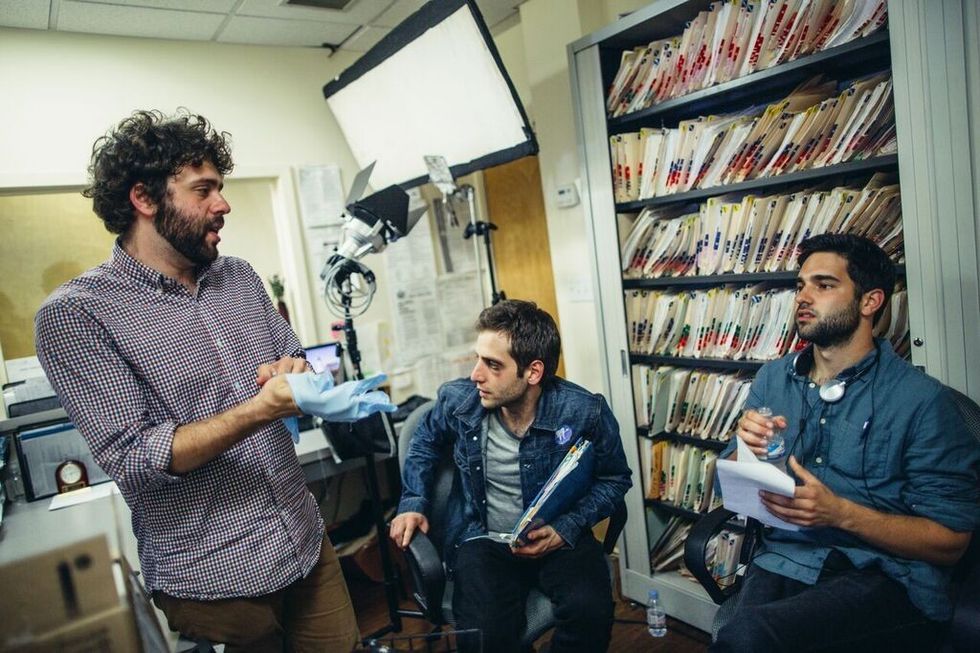
The one area that still makes them wince is the challenge of acting while directing.
Primason laughed, looking back. “Yeah, we found out after production that a lot of our crew was skeptical about three people being creatively in charge of the movie. They thought it would be a mess.” Even Porter, who has directed while acting in many sketches, affirmed that when making a feature, acting in it is not a wise choice—particularly on the technical level. “The level of acting required for a comedic sketch allowed me to sit in scenes and direct, simultaneously, but this was a movie where I had to have an arc, where I had to get upset, be in love. I can’t do that if my mind is elsewhere.”
“Acting and directing is like trying to sit in the 70th row of an airplane, have a subtle conversation with a stranger to your left, while also flying the plane.”
He gave an exasperated laugh. “Acting and directing is like trying to sit in the 70th row of an airplane, have a subtle conversation with a stranger to your left, while also flying the plane.”
So how did they compensate? Preproduction was exhaustive. Over the course of four years, as the script evolved, they did a ton of table reads. They listened to suggestions and made lots of revisions. They kept checking in with each other, asking ‘Why do we like this?’ The week before shooting began, they even went on a retreat together—a parallel to their infamous high school sleepover—in order to collect their thoughts. Porter explained the event almost bashfully, admitting "we needed to work through things, lose our egos, fortify our shorthand, and say to ourselves ‘We’re good, right? We can do this.’”
“Every night we could flip through that checklist, just like a book, and see our progress. We could actually say, ‘Hey we’ve gotten a fourth of the movie done!’”
They also made a meticulous shot-by-shot checklist. Then, when their DP Kuperstein came with them to scout locations, they took a still photo to represent every single shot on their shot list: close-ups, reverse shots, three photos in a row to show a movement, etc. It became the go-to benchmark for their intentions. During production, the film’s DIT would replace the photos with stills from the dailies. “Every night we could flip through that checklist, just like a book,” Porter marveled, “and see our progress. We could actually say, ‘Hey we’ve gotten a fourth of the movie done!’”
Primason smiled at the memory. “All that pre-pro really paid off. As a result, there was nothing we hadn’t thought about and discussed, in terms of intent or purpose. We were all on the same page, and we knew at least one of us was going to be there by the monitor at all times on set.”
“You have to be able to black out and know that things will keep moving without you.”
While they may never try that again, the group did make it work. “The only way to collaborate on so many levels at once is to have a team,” Porter confirmed. “You have to be able to black out and know that things will keep moving without you.” Azulay thinks they got lucky: “It helped that we were aware of our own dynamic. But it also helped that we were ignorant enough to think it would not be a problem.” They all laughed.
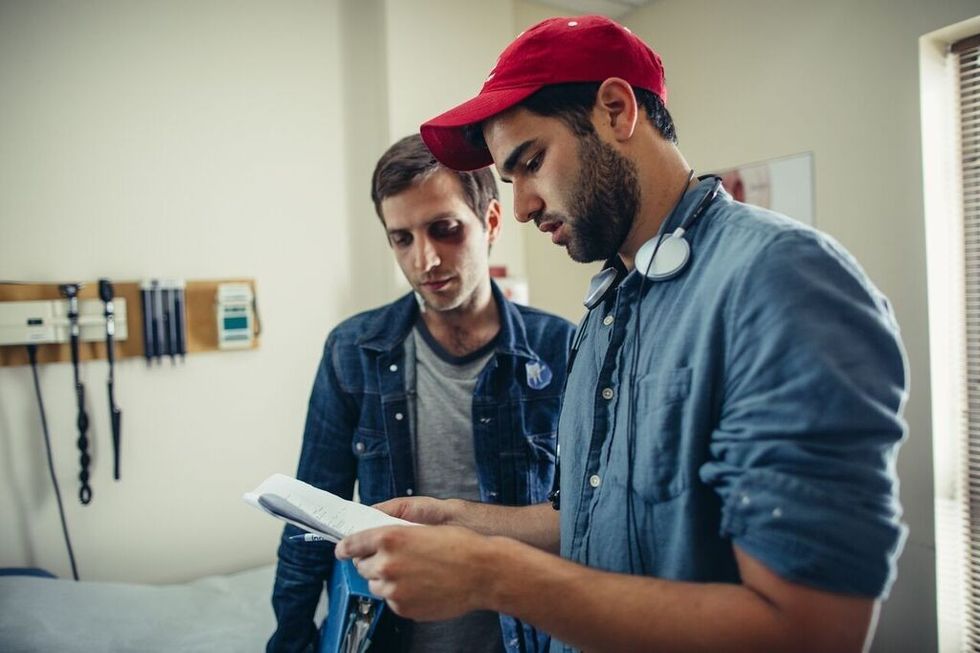
5. Don’t fear commitment
In our previous interview at Just For Laughs ’17, Porter emphasized the value of consistent output: keep delivering a stream of content without being too precious. “On Good Cop, Great Cop, we’d keep making new videos in order to keep improving. "We didn’t worry about perfection,” he said. Now that Porter has made a feature film, however, his philosophy has evolved.
“It was a really tough transition,” he admitted. “The process of making a feature is so much more layered and complex than a short. You learn to reignite your drive for the project on a daily basis, and you do that by taking pleasure each time you add a new layer, despite the exhaustion. It’s only going to become richer."
“That push for a rapid turnover makes it so easy to never finish a single draft of anything.
Porter reflected on his growth from creative ADD to tunnel vision. “When you’re making something brand new every week,” he explained, ”I think there’s something of a defense mechanism for your insecurities built into that process.” Azulay groaned in agreement. “That push for a rapid turnover makes it so easy to never finish a single draft of anything. You don’t have to fully commit. But when we were making 5 Doctors, that took commitment.”
Don’t mistake their expanded understanding for self-conflict. As it turns out, the meaning of commitment changes as you get older. “When 20-somethings talk about being precious, it’s because they’re impatient. They want to keep learning, to have the courage to call something done and move on to the next thing,” Porter explained. “But that changes with time.” “Making things isn’t just constant energy and ADD," Azulay explained, "and this feature was something we really cared about and wanted to get right: the story, the themes, the characters. We said ‘let’s work hard on something’—and by the end, we really believed in it.”
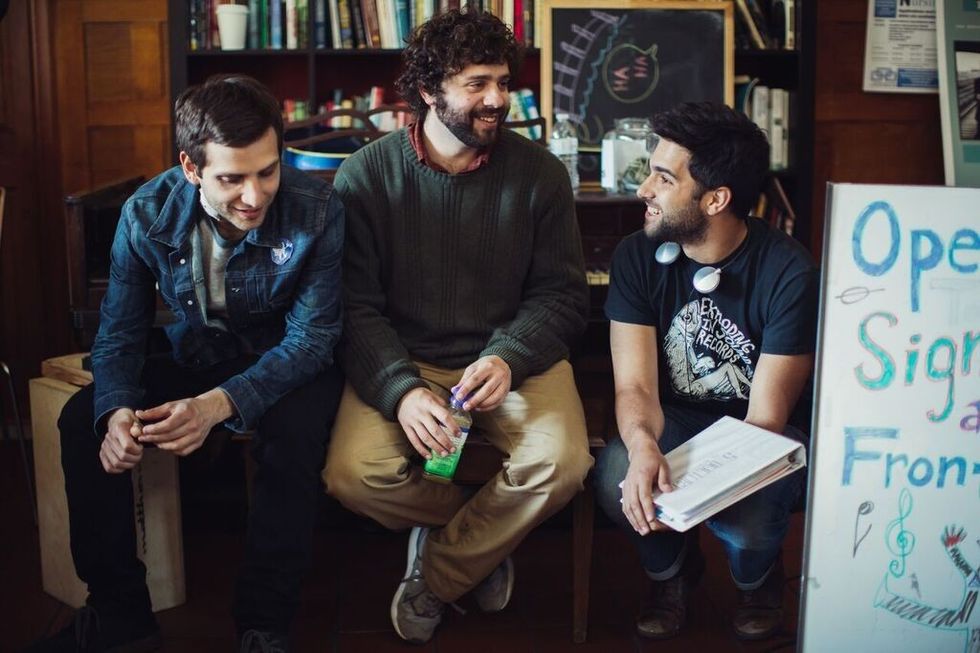
6. Be brutal in post (and even beforehand)
Even today, the trio cringes at the memory of watching their film’s first rough-cut. “It was a really horrible moment,” Azulay laughed. “It was over two hours long. Chipping away at it was a huge learning experience.”
Primason rocked in his chair, remembering, “when you’re editing a feature rough-cut, you’re fine-tuning on wildly different scales. You have to cut out entire storylines, but you also have to be conscious of something as small as a bad line read. It’s difficult to keep these things separate, weighing an unnatural performance versus something much larger.”
"A lot of the negative notes we got on our edit were also issues that we’d had with our original script. We didn’t take enough of those notes to heart."
Porter chimed in. “We were surprised how much we’d repeated ourselves emotionally. We’d watch something we once thought was essential to the plot and be like ‘Wow, it’s the same scene over again.’ We had to kill a lot of darlings.” Azulay steepled his fingers, reliving the trauma, then had an epiphany: “You know what? A lot of the negative notes we got on our edit were also issues that we’d had with our original script. We didn’t take enough of those notes to heart. Make sure your script feels as good as possible and that you really have a consensus before you go into production. It will save you time. And anguish.”
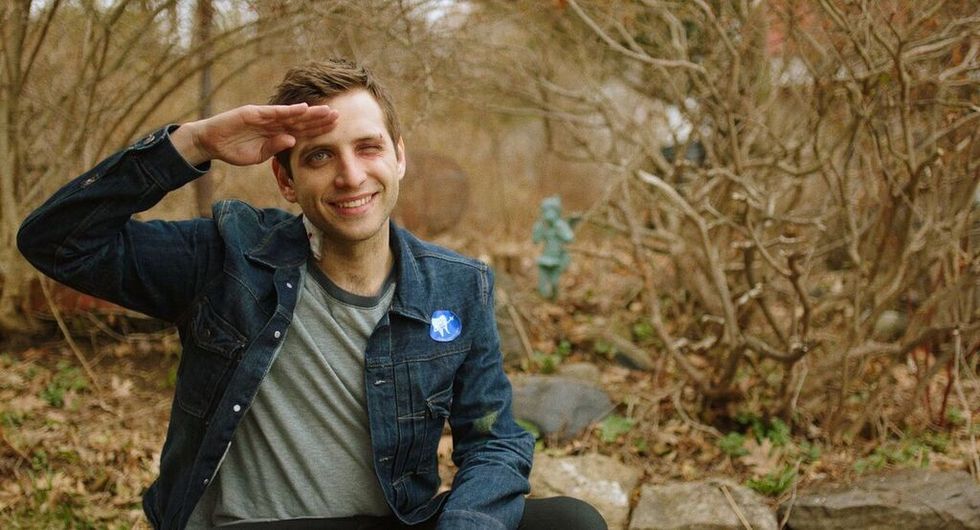
“We were blessed by being slightly naïve,” Azulay smiled. “The idea that all three of us could direct, write, and act was loaded with hubris. We might have more pause now, but it was also great that we just dove in. We wouldn’t have made our film otherwise. Dive into every piece of your film as much as you can. We consider ourselves lucky with money and how things panned out, but the attitude of ‘We’re gonna do this’ was really the best thing we had going for us.”
"No one piece of work is gonna define your voice. Your voice is your entire lifetime of work."
Porter grinned in agreement: “The sweet spot is trusting your gut and being OK with the fact that whatever you make at age 25 is probably not gonna be that good. But you still gotta make it. You gotta make your first feature.” He paused, “after all, no one piece of work is gonna define your voice. Your voice is your entire lifetime of work. That’s what’s precious.”
For more information on where you can currently stream '5 Doctors', please click here.











